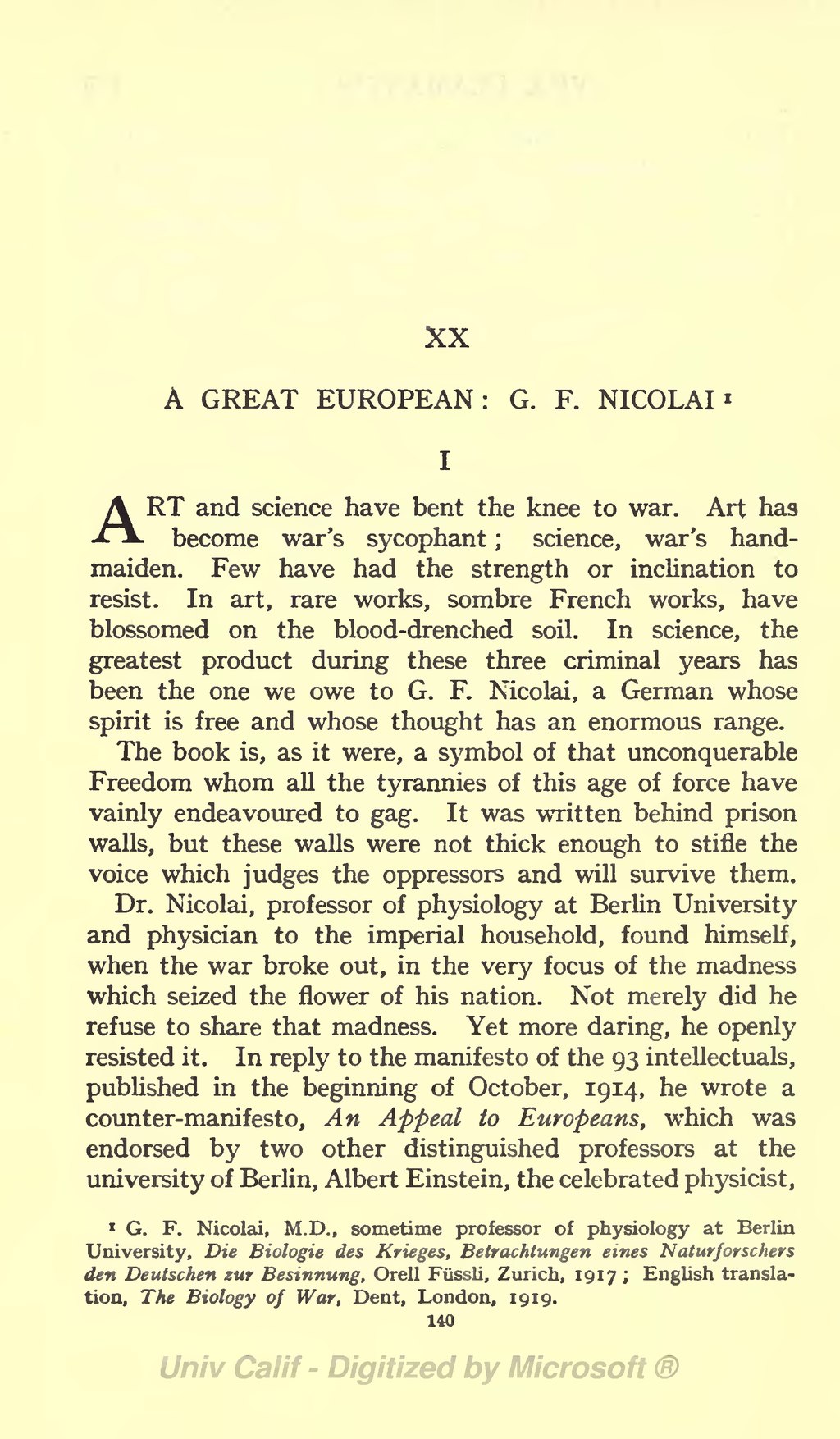XX
A GREAT EUROPEAN: G. F. NICOLAI[1]
I
ART and science have bent the knee to war. Art has become war's sycophant; science, war's hand-maiden. Few have had the strength or inclination to resist. In art, rare works, sombre French works, have blossomed on the blood-drenched soil. In science, the greatest product during these three criminal years has been the one we owe to G. F. Nicolai, a German whose spirit is free and whose thought has an enormous range.
The book is, as it were, a symbol of that unconquerable Freedom whom all the tyrannies of this age of force have vainly endeavoured to gag. It was written behind prison walls, but these walls were not thick enough to stifle the voice which judges the oppressors and will survive them.
Dr. Nicolai, professor of physiology at Berlin University and physician to the imperial household, found himself, when the war broke out, in the very focus of the madness which seized the flower of his nation. Not merely did he refuse to share that madness. Yet more daring, he openly resisted it. In reply to the manifesto of the 93 intellectuals, published in the beginning of October, 1914, he wrote a counter-manifesto, An Appeal to Europeans, which was endorsed by two other distinguished professors at the university of Berlin, Albert Einstein, the celebrated physicist,
- ↑ G. F. Nicolai, M.D., sometime professor of physiology at Berlin University, Die Biologie des Krieges, Betrachtungen eines Naturforschers den Deutschen zur Besinnung, Orell Füssli, Zurich, 1917; English translation, The Biology of War, Dent, London, 1919.
